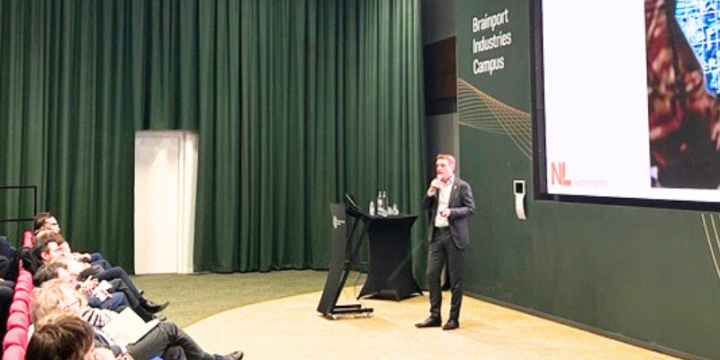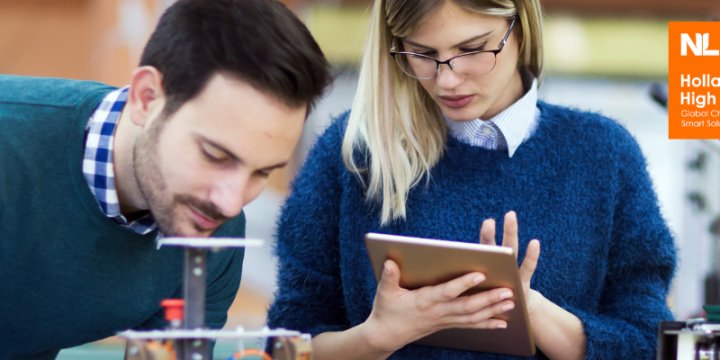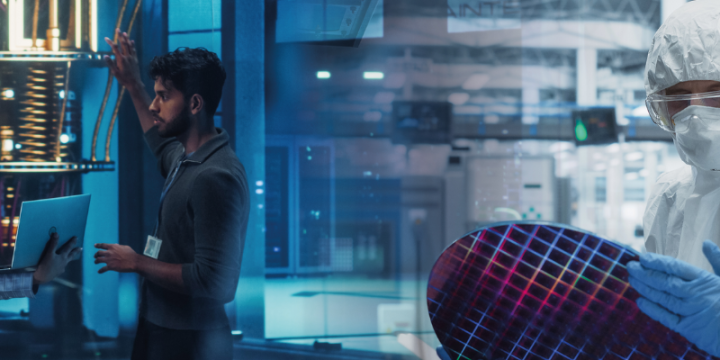The Netherlands is in the running to build the Einstein Telescope. Today, the province of Limburg, science financier NWO and the Dutch government are taking an important step forward to secure the largest scientific construction project ever, together with partners in Germany and Belgium: the establishment of Einstein Telescope Netherlands (ET-NL). ET-NL will play a coordinating and stimulating role between all parties in the Netherlands that are working on the arrival of the telescope in the Euregio Meuse-Rhine (EMR, border region in South Limburg).
Image: Marco Kraan/Nikhef
Today it will also be announced who will staff ET-NL. Sjoerd Sjoerdsma has been appointed CEO of ET-NL. As an experienced member of the House of Representatives and former diplomat, he brings the political and administrative experience to connect and stimulate nationally and internationally. Sjoerdsma grew up in Limburg and is looking forward to delivering the best bid book, the project proposal, for the Einstein Telescope together with all those involved.
Sjoerd Sjoerdsma:
The Einstein Telescope is a scientific wonder and will be a major boost for the Dutch economy and the Limburg economy in particular. I am proud to lead the team that will do everything in its power to bring the Einstein Telescope here.
The second person to start today at the newly established network organization is Stan Bentvelsen. As Chief Science Officer (CSO), he will be responsible for the scientific part of the bid book. A crucial role, because with this instrument we are going beyond the boundaries of what is currently scientifically possible. Bentvelsen is an internationally renowned physicist who, as director of Nikhef and as scientific director of the Einstein Telescope EMR project office, was one of the founders of the assignment to bring this telescope to the border area of the Netherlands, Belgium and Germany. He will follow up on this in his new role.
Stan Bentvelsen:
The Einstein Telescope will shake up our image and knowledge of the universe considerably in the coming decades. This telescope is truly revolutionary and groundbreaking in scientific terms and the whole world will benefit from this. We will do everything we can to build this instrument in the Euregio Meuse-Rhine.
The establishment of the organisation is part of the additional investment of €16 million, of which €4.2 million from the Province of Limburg, which Minister Bruins (Education, Culture and Science) announced on Budget Day.
Minister Bruins:
The Einstein Telescope will become a nursery for new science that will not only lead to new discoveries about the universe, but can also deliver a lot of new technology that will change our lives. The next two years are crucial to make our plan as promising as possible. A lot of work is needed for that, from the design of this technical masterpiece to the lobbying to gain support for our plans. I have a lot of confidence in these people and in the race to bring that telescope to our border region.
National priority
Countries in several places in Europe are working on a good proposal to be allowed to build the Einstein Telescope. Italy is in the race, and the Netherlands, together with partners from Belgium and Germany, is too. The Netherlands has a reserve of €870 million from the Growth Fund ready for the construction of the telescope. To emphasise how important the telescope is for science, society and our economy, the cabinet declared bringing in the telescope a national priority last November.
What is the Einstein Telescope
The Einstein Telescope is not a telescope as many people know it. It is an underground triangle of large tubes, in which laser beams are fired and then reflected by mirrors. By measuring these beams very precisely, you can detect gravitational waves from space. This allows scientists to learn new things about our universe and test Einstein's theory of relativity for the first time. The development of the telescope requires a lot of new knowledge and it stimulates technological innovations and business. Various affiliated European countries are expected to decide at the end of 2026 where the telescope may be built. The exact date on which the project proposal must be submitted is not yet known.
A telescope of this size is not only a boost for science, but also attracts many scientists from all over the world. Based on research, it is expected that every euro for the Einstein Telescope will be earned back 3 to 4 times and the telescope will directly and indirectly create 2000 jobs. Not only for scientists, but also for practically trained technicians, for example. The preparations for the telescope in the region have also stimulated various educational initiatives. Examples of this are the Einstein Telescope Education Center (ETEC), located in the Discovery Museum in Kerkrade, and the future Einstein Academy, where vocational and higher professional education students are trained who can work at or around the Einstein Telescope after their studies.





